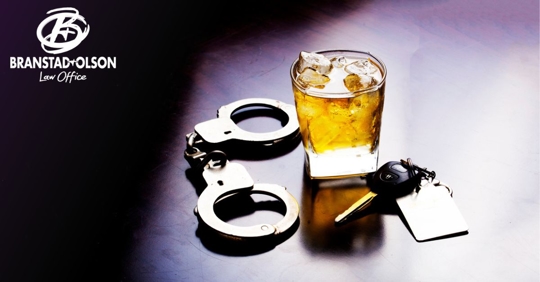No one is immune to mistakes. The error of drinking and driving can lead to serious consequences, such as getting an OWI/DUI. In Iowa, even those charged or convicted of an OWI/DUI after one mistake will most likely face severe penalties.
What leads to an OWI/DUI?
Many assume you must be legally intoxicated behind the wheel of a moving vehicle on a public road to be charged with an OWI/DUI. That’s not always the case.
An OWI/DUI can result from:
● Having a BAC (blood alcohol concentration) higher than .08%;
● Being under the influence of alcohol, drugs, or a combination of similar substances that impairs someone’s ability to operate a vehicle;
● Having any amount of a controlled substance in their system; or,
● Being behind the wheel of a non-moving vehicle with a running engine
BAC is the most common reason an individual is charged with an OWI/DUI. BAC higher than .08% is the most common condition leading to OWI/DUI. There are also penalties for drivers are under 21, with a BAC higher than .02%. Drivers who operate a commercial vehicle cannot have a BAC higher than .04%.
What Happens After an OWI/DUI Charge?
Interactions with law enforcement are the first step in determining how and if an OWI/DUI charge will proceed. Iowa follows ‘implied consent’ law, meaning anyone driving agrees to submit a blood, breath, or urine test to determine the level of alcohol or presence of drugs in their system if law enforcement believes they have reasonable grounds to suspect impairment.
A driver can usually refuse a chemical test; but that refusal usually results in a one year license suspension.
A driver with a test showing presence of controlled substances or blood alcohol content over the legal limit also faces suspension.
A driver may get back behind the wheel with a Temporary Restricted License (TRL) under certain circumstances. The Iowa DOT website provides forms and conditions for TRLs.
What Happens After an OWI/DUI Conviction?
Sentencing may include: jail time, fines, probation, fees, court ordered classes. A first offense OWI/DUI conviction is usually classified as a serious misdemeanor. That misdemeanor is permanently on a criminal record if a deferred judgment is not granted. A deferred judgment may be available to a driver who:
- Does not have two prior deferred judgments
- Had a BAC under .15
- Does not have a prior felony
- Does not have a prior OWI.
There are no guarantees in any case, but the team at Branstad & Olson will help you take any possible steps to protect your personal and professional life after an OWI/DUI charge — contact our team to set up a free consultation. (515) 329-3100

